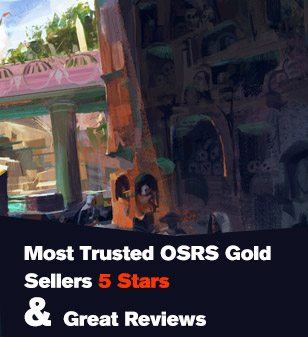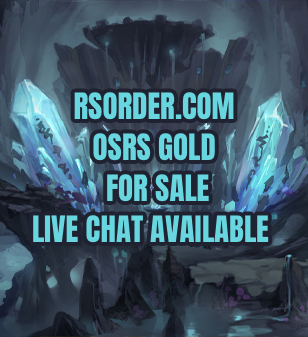Top News
-
RuneScape: 300 HM Zuk With No Sword
Feb-28-2026 PST / Runescape -
Elden Ring DLC Build Guide: The Barbaric Roar Twinblade
Feb-28-2026 PST / Elden Ring -
Path of Exile 2 Invoker Flicker Strike Monk Damage Tips
Feb-28-2026 PST / POE 2 -
FC 26: Yankuba Minteh - Agile winger
Feb-27-2026 PST / FC 26 -
FC 26: All 1 of 3 88+ Campaign Mix Player Pick SBC Rewards Guide
Feb-27-2026 PST / FC 26
Navigating the Shadow Realm: Strategies for the New PvE Boss Gauntlet in Dark and Darker
Understanding the Shadow Realm Gauntlet
The Shadow Realm is a procedurally generated dungeon layer introduced as part of the late-game PvE content in Dark and Darker. Accessible via cursed portals in high-tier dungeons, the Shadow Realm consists of:
Five escalating boss encounters
Corruption modifiers that rotate weekly (e.g., darkness zones, stat debuffs)
Unique loot drops, including Soulbound gear and legendary crafting materials
You must survive all five bosses in a single run to claim your rewards, and failure means total loot loss.
Prepping for the Gauntlet: Team Composition & Gear
Optimal Party Setup:
While some players solo the gauntlet, it’s balanced for trios. Consider this setup:
Fighter (Tank/DPS): Absorbs aggro, uses shield wall and taunt.
Cleric (Support): Provides healing, buffs, and undead utility.
Ranger or Rogue (DPS): Handles mechanics, traps, and ranged damage.
Essential Gear:
Shadow-Resist Potions: Reduces corruption damage over time.
Holy Oil: Buffs weapons vs. shadow or undead-type enemies.
Torches/Lanterns: Crucial for darkness-heavy corruption modifiers.
Health & Mana Potions: Stock at least 3-5 per player.
Maximize weapon durability and enchantments beforehand. Damage bonuses against specific boss types (e.g., Undead, Demonic) are invaluable.
Boss-by-Boss Breakdown
Each boss has three variants, altered by weekly modifiers. Here’s a general strategy for each base boss type:
1. The Warden of Chains
Role: Frontline brute with chained AoE slams.
Mechanics: Pulls players in before slamming the ground.
Counter: Use terrain to block line of sight. Cleric should stagger heals after slam phases.
Corruption Variant: "Soul Shackles" apply a stacking debuff unless broken—assign one player to kite chains to the edges.
2. The Shadow Lich
Role: Ranged caster with summoning powers.
Mechanics: Casts death novas and summons skeletons.
Counter: Interrupt casting with stuns/silences. Burn down adds fast.
Corruption Variant: Death nova leaves lingering void zones—bait them to safe corners.
3. The Bone Hydra
Role: Multi-headed beast with sweeping AoEs.
Mechanics: Each head targets a different player; heads respawn if not killed simultaneously.
Counter: Coordinate burst damage to take down heads together.
Corruption Variant: Adds a “Madness” debuff on proximity—rotate tanking duties.
4. The Dread Revenant
Role: Agile melee boss with stealth phases.
Mechanics: Goes invisible and reappears behind players.
Counter: Use AoE to reveal him; ranger traps can lock his pathing.
Corruption Variant: Shadow clones mimic his attacks. Use sound cues to identify the real Revenant.
5. The Eclipsed King
Role: Final boss; multi-phase with both magic and melee.
Mechanics: Switches phases based on HP thresholds.
Counter: Save damage cooldowns for phase transitions. Heals need to be preemptive.
Corruption Variant: Adds a “Darkness Flood” phase where all light is extinguished—use lanterns and spread out.
Managing Corruption Effects
Each weekly reset brings new corruption modifiers that apply dungeon-wide effects. Key types include:
Darkness: Reduces ambient light. Use lanterns and spells.
Despair: Reduces healing received. Rely more on avoidance.
Decay: Causes food and potion buffs to expire faster.
Soul Drain: Slowly depletes mana pools. Conserve spells or bring mana regen gear.
Tip: Check the modifier board before entering the portal. Build your loadout around the worst modifier.
Advanced Team Tactics
Communication
Call out boss mechanics and HP status.
Assign a caller for interrupts and target prioritization.
Role Responsibilities:
Tank: Face bosses away from team, bait AoEs.
Healer: Precast heals before known damage phases.
DPS: Handle adds and assist with mechanics like chains or head kills.
Resource Management
Conserve cooldowns in early fights.
Share potions or loot between encounters to maintain uptime.
Solo Player Strategy
Soloing is possible but extremely risky. Classes best suited:
Rogue: High burst and stealth.
Ranger: Trap control and ranged kiting.
Tips:
Focus on kiting bosses around terrain.
Use poison, bleed, or DoT builds to whittle bosses down safely.
Stealth between fights to regen and prep buffs.
Rewards and Progression
Clearing the Shadow Gauntlet yields:
Legendary gear with corruption resist or boss-slaying affixes
Soulbound crafting mats used for best-in-slot gear
Shadow Seals used to open ultra-rare treasure rooms in normal dungeons
Progress is tracked via the Shadow Ledger, which also unlocks vanity rewards like titles and Dank and Darker Gold for sale cosmetics.
Conclusion
The Shadow Realm Boss Gauntlet is the ultimate test of your Dark and Darker skillset. With rotating corruption effects, challenging bosses, and high-value rewards, it offers a dynamic endgame experience that keeps even veterans on their toes. Build a balanced party, learn each boss’s mechanics, and stay adaptable. Whether you're grinding for legendary loot or climbing the Shadow Ledger leaderboard, the darkness awaits—and it demands mastery.
Recently read
-
RuneScape: 300 HM Zuk With No Sword
Feb-28-2026 PST / Runescape -
Elden Ring DLC Build Guide: The Barbaric Roar Twinblade
Feb-28-2026 PST / Elden Ring -
Path of Exile 2 Invoker Flicker Strike Monk Damage Tips
Feb-28-2026 PST / POE 2 -
FC 26: Yankuba Minteh - Agile winger
Feb-27-2026 PST / FC 26 -
FC 26: All 1 of 3 88+ Campaign Mix Player Pick SBC Rewards Guide
Feb-27-2026 PST / FC 26


